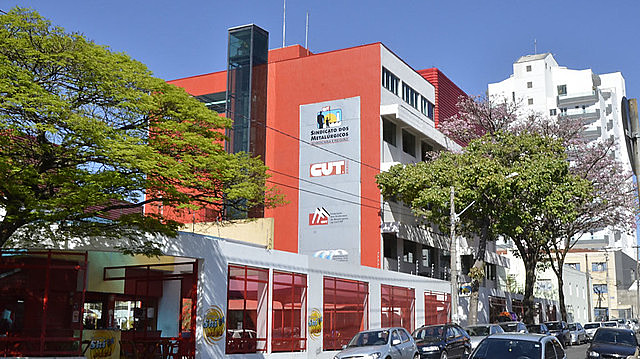The proposed pension reform pushed by the Jair Bolsonaro administration had an unprecedented effect: the unity of all trade union centers during May Day demonstrations in Brazil. It was the first time all trade union organizations came together for the International Workers’ Day since 1988, when the country enacted its most recent Constitution.
The unity in the streets also reflects a challenge posed to all of them since the Michel Temer administration: to survive the attacks carried out by the government and face labor setbacks.
Emerging between the late 19th century and early 20th century, along with industrialization in the country, the labor movement in Brazil has had many phases throughout its history. There was anarcho-syndicalism during the early years of the Republic, the labor era, the times of resistance against the military dictatorship, and the “new labor movement” that emerged during the democratic transition. Some of the constitutional rights organized workers struggled to secure include a national minimum wage, the thirteenth salary, and paid vacations.
But the obstacles that are now being imposed to trade union organizations could, in the medium term, result in a new phase of this century-long history, an expert says.
João Guilherme de Vargas Netto, a consultant with trade unions, says there are “three negative elements” that are pressuring unions today: economic recession, Temer’s “criminal” labor legislation, and the “Bolsonarism” and its measures.
The first element, economic recession, increased the country’s unemployment rate to 12.7 percent and made it hard for unions to mobilize and struggle to defend and demand rights.
The second element, Temer’s labor reform, has weakened unions’ ability to represent workers, while Jair Bolsonaro, by issuing executive orders, has been intensifying attacks and trying to make the organizations financially unsustainable.
In 2017, Temer turned a mandated fee every employee had to pay to finance labor unions into a voluntary contribution, a move that greatly hurt the organizations’ revenue. Now, in one of the most recent and serious attacks yet, the Bolsonaro government issued an executive order during Carnival season to change the way these fees are paid – instead of being collected out of workers’ wages, now they will be paid separately with a bank slip.
Many organizations have expressed concerns about the new measure, including the Labor Prosecution Service and the Brazilian Bar Association.
Vargas Netto argues that “the antidote for current and future assaults” is to make labor unions’ presence an increasingly tangible element in workers’ everyday lives.
“They will need to group and regroup. And apply the three verbs: to exist, to resist, and to unite. It’s important to take that unity they built [for May Day] to their bases. The labor union movement needs to go to the workplace and be effectively present in the company’s everyday lives,” he says.
Positive example
The Metal Workers’ Union of Sorocaba, in Brazil’s southeastern state of São Paulo, has an over 40-percent membership rate, while the national average in Brazil is 15 percent. The organization has taken up the challenge proposed by the consultant and is not just promoting activities in the workplace, but also with the community.
The union’s secretary, Izidio de Brito, says that the three elements Vargas Netto points out were “planned” to promote a super-exploitation model that aims at cutting down rights and limiting the entities that fight for them.
In the city of Sorocaba, Brito says, the union has been working with the concept of “Citizen Union” for more than two decades. In this sense, it invests in areas such as healthy eating, maintaining a food bank that is shared with other organizations, as well as promoting an environmental agenda, running a recycling collection project.
“The role of unions goes beyond the corporate matters of each industry. If we don’t pursue that path, we are not going to be able to represent anyone. We need to be able to speak with the new productive reality, with a new profile of workers,” Brito adds.
Brito says there must be a specific approach for those who are unemployed, and this is why in Sorocaba they offer professional training and requalification courses, not only for union members but for people at large. Not only that, but the secretary says that the labor union movement must be able to absorb demands from specific segments of society that “intersect” with class issues.
“When we speak about democracy, we have to speak about differences. Women struggle in the job market. Black people too. People with disabilities struggle. I see that this has advanced a lot in collective conventions, but we have to speak up and discuss more about it,” he adds.
A generation renovation without losing sight of the victories accomplished in the past is another thing that has been working. In the Sorocaba metal workers’ union, three of the main positions – president, secretary-general, and treasurer – are held by workers below the age of 40.




